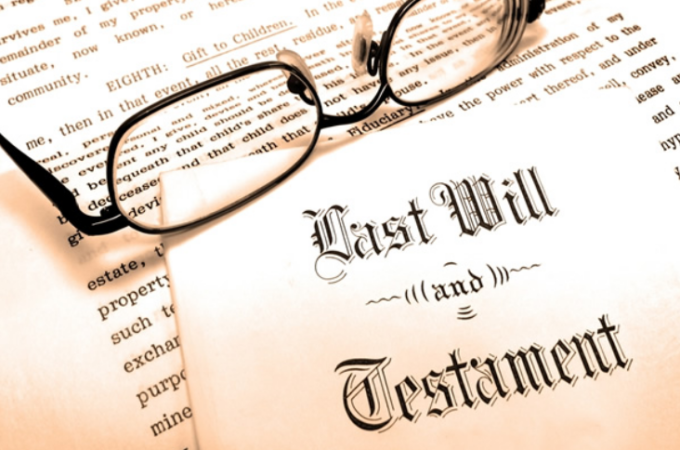Today’s blog was written by guest blogger, Anna Chen, Associate at Fasken LLP.
The current pandemic has created a number of difficulties in having Wills drafted, signed and witnessed in the usual course. As a result, we may see an increase in the number of handwritten Wills, which are commonly known as “holographic” Wills. This Blog Post will address some of the frequent questions that arise with respect of holographic Wills.
Q: What is a holographic Will?
A holographic Will is one that is written by the testator “wholly” in his or her own handwriting and signed by the testator at the end of the Will.[1]
Q: Is a holographic Will considered a valid Will?
Yes, as long as the holographic Will meets the requirements set out above, it possesses the same validity as a “formal” Will (which is a Will that is executed by the testator at the end of the Will, in the presence of two or more witnesses who are both present at the same time and who sign the Will in the presence of the testator).[2]
Q: Does a holographic Will need to be witnessed?
No, a holographic Will does not need to be witnessed.
Q: What if the holographic Will was signed by a witness?
The mere fact that a Will, which otherwise satisfies the requirements of a holographic Will, is signed by a witness does not invalidate the Will’s “holographic” status.[3] In other words, a witness’ signature, by itself, does not bring the holographic Will under the purview of section 4 of the Succession Law Reform Act, which sets out the requirements for a “formal” Will.
Q: Does the holographic Will have to contain certain legal language?
No. However, a holographic Will must contain a “deliberate or fixed and final expression of intention as to the disposal of property upon death.”[4] For example, the following language was held to be a valid holographic Will:
“… When I die, St. Andrew Babola Church will arrange for my burial and will be the beneficiary of my Bank Savings. Domenic Carota will receive my household effects.”[5]
Q: If the holographic Will contains typewriting, is it then invalid?
No. Although the Succession Law Reform Act requires that a holographic Will must be “wholly” in the testator’s own handwriting, the courts have held that this does not mean that the holographic Will must only contain the testator’s own handwriting in order to be valid. Where a document contains, for example, mixed typewriting and the testator’s handwriting, the handwritten portions will be extracted and examined separately.[6]
Q: Does the testator have to sign the Holographic Will with his or her full signature?
No, the courts have found that initials or marks (such as a stamp representing the testator’s name)[7] are sufficient so long as the initial or mark was affixed to represent the testator’s name with the intention of authenticating the document as binding on the testator.
As can be seen from the above, although the legislation sets out minimum requirements for a holographic Will (simply that the holographic Will be in the testator’s own handwriting and signed by the testator at the end of the Will), issues and questions frequently arise with respect to this category of Wills as individuals are given “free rein” to create their own handwritten Wills, often without the assistance of legal counsel. What this Blog Post has hopefully demonstrated is that the courts are often called upon to address the issues and questions that more often arise with respect to holographic Wills. Ultimately the validity of a particular holographic Will will depend on the facts of the case. The preparation and implementation of a valid Will, whether a holographic or formal Will, is a matter that benefits from the assistance of professional advice.
About Anna Chen
Anna Chen is a member in the Litigation and Private Client Services practice groups at Fasken. Anna is called to the Bars of British Columbia and Ontario. She assists clients in both provinces when disputes arise involving wills, trusts, inheritances, estate administration and family property division. Anna helps to resolve issues through negotiation, mediation and, when necessary, litigation.
[1] See section 6 of the Succession Law Reform Act.
[2] See section 4 of the Succession Law Reform Act.
[3] Ford v. Mazman, 2019 ONSC 542.
[4] Bennett v. Manitoba (Official Guardian) Re Gray Estate, [1958] S.C.J. No. 28 (S.C.C.).
[5] Nowak Estate v. St. Andrews Bobola Church, [1993] O.J. No. 124 (Ont. C.J.).
[6] Re Coate Estate (1987), 26 E.T.R. 161 (Ont. Surr. Ct.).
[7] Re Clark, (2008) CEAG para. 31, 583 (Ont. S.C.J.).


0 Comments